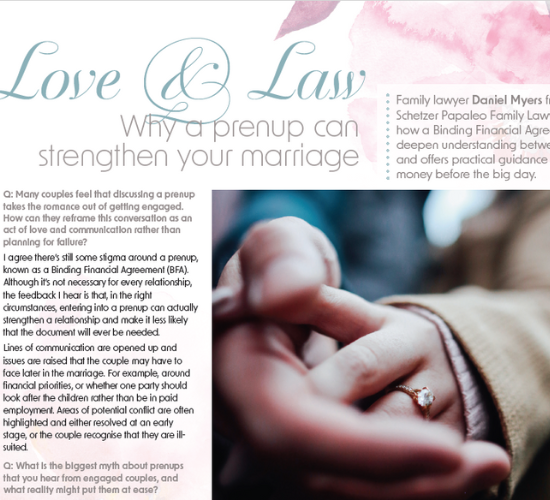Ever wonder if you can ask your ex to delete those private photos or videos? Or what actually counts as an intimate image? And what does it mean when someone shares those pics without your OK? If someone’s threatening to leak nude photos or sexual videos, what can you do about it? Jodylee Bartal breaks it all down, explaining the law and advice for dealing with “image-based abuse” — also known as “revenge porn” — and how to protect yourself.
Do I have the right to ask my ex-partner to destroy intimate photos and videos?
Yes. You should ask the person to permanently delete and confirm they have deleted any photos and/or videos. If they don’t, you should consider informing them that they may be committing a Federal and/or State offence.
What is an intimate image?
- A semi-nude or nude image or video depicting the genital or anal region, or breasts of a person.
- An image of a person without the attire of a religious or cultural significance.
- Images or videos of a sexual nature, even depicting a person in a compromising or private situation, such as going to the toilet.
- A photo-shopped or edited image, for example where a person’s face is edited onto nude or sexually explicit material.
What is non-consensual distribution of an intimate image?
The following may be considered ‘distribution’:
- Sending a naked picture of someone to another person(s) without their knowledge or permission.
- Posting a photo or video of a sexual act online without the person’s knowledge or permission.
- Printing an intimate image and leaving it in a place where it might be seen.
- Showing an intimate image of a person to another person(s) which is stored on a mobile phone or other electronic device.
An image does not need to be viewed/accessed for the offence of non-consensual distribution of an intimate image to apply as a person cannot be presumed to have consented to the distribution of the intimate image, simply because they agreed on another occasion, they shared the image or a similar image with someone else.
A person has NOT given consent if:
- They were tricked, threatened, forced or coerced.
- They were under the influence of drugs and/or alcohol.
- They were under the influence of a person in a position of power or authority.
Is someone threatening to share a nude or sexual image or video?
A person may have committed an offence if they threaten to capture or share an intimate image with the intention that the person will fear that the threat could be carried out.
Where to go for help
If you believe that you have experienced image-based abuse, you can seek help from the Police.
Police will be able to work out whether there are criminal laws in your State or Territory that apply to your experience. If so, they may investigate who is responsible for sharing or threatening to share an intimate image or video.
Get legal advice
If may be a good idea to obtain legal advice before going to Police, for example, to help you collect evidence, make a statement and engage with Police.
You may be able to apply for a protection order (aka intervention order or an IVO). A protection order can stop another person from doing things like sharing or threatening to share your intimate images or videos.
1800RESPECT
1800respect is a national domestic violence and sexual violence counselling service which may also be able to assist you with safety planning.
e-Safety Commissioner
The website for the e-Safety Commissioner website is another important resource containing information about:
- Reporting image-based abuse including ‘revenge porn’.
- How to reach out to an expert counselling service for support.
- What to do if you are being blackmailed to pay money or provide more intimate content.


